ChatGPT Sent Me To The ER
Three days ago, I was one hour away from hosting eighteen people for dinner when ChatGPT told me to drop everything and go to the emergency room. It was right. If I'd followed my instincts instead, it could have been catastropic.
The trouble started innocuously enough. I woke up with pain radiating through the left side of my head—neck, jaw, even behind my eye. As someone who grinds their teeth at night, morning headaches aren't uncommon. This felt like more of the same, just turned up a notch.
Still, I checked with my health consultant, Dr. GPT. Its assessment matched mine: likely TMJ from grinding. Could be something else, but those alternatives were rare enough to dismiss. I popped some ibuprofen and moved on with my day.
The next day, my neck hurt worse than my jaw. Maybe I was getting sick? My lymph nodes sometimes swell dramatically when I'm fighting something off.
That evening, I noticed my left eye felt odd. I went to a mirror and was surprised to see my left eyelid drooping, covering far more of my eye than it should. Again, kind of weird but not totally unlike things I've had before. Maybe an eye infection?
I reported this new symptom to ChatGPT, which offered a menu of possibilities: sinus infection, conjunctivitis, cluster headache, or (less likely) something neurological like Horner's syndrome. It recommended I get checked out "soon, ideally today."
With dinner guests arriving in an hour and a four-day trip starting the next morning, my initial plan was to just power through. I'd grit my teeth through dinner, get some sleep, and hope for improvement.
You know how ChatGPT has that annoying tic where it ends lots of answers with "Would you like me to..." to keep the conversation going? I usually find this rather annoying, and have debated adding some custom instructions to suppress it.
However, this time it asked "Would you like me to lay out what signs would mean you should go to the ER right away?" and I said yes.
Most likely, ChatGPT explained, my symptoms pointed to something benign but uncomfortable. However, there was an uncommon but serious possibility worth ruling out: Horner's syndrome caused by carotid artery dissection. It listed six red flags to watch for.
The first two didn't apply and I ruled them out immediately.
The third item was "Unequal pupils (left clearly smaller, especially in dim light)."
"Surely not," I thought, and glanced in the mirror. And froze. My left pupil was noticeably smaller than my right. When I dimmed the lights, the difference became stark.
ChatGPT's response was unequivocal: "Go to the emergency department. Now. Tell them you want to rule out Horner's syndrome due to possible carotid dissection."
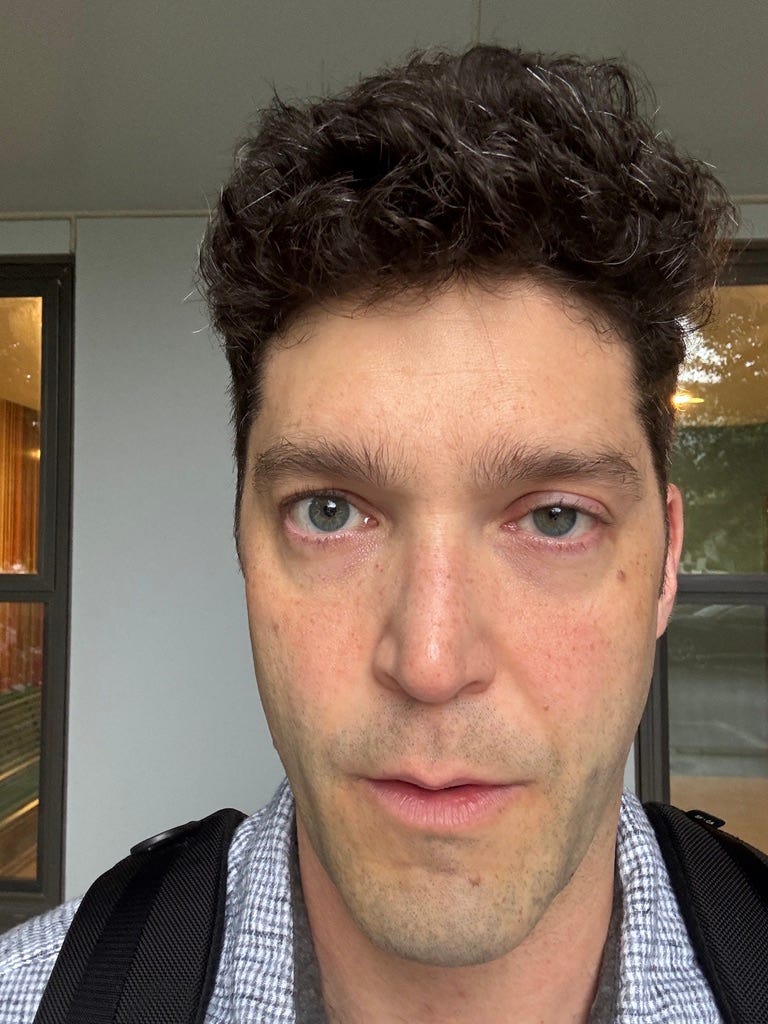
I scrambled to make a backup plan for my inbound dinner guests, grabbed a friend for support, and headed to the ER.
The CT scan confirmed ChatGPT's suspicion: my left carotid artery had indeed dissected. The inner wall had torn, allowing blood to leak between the layers of the vessel. This created a false channel that compressed the true one, blocking most of that artery's blood flow to my brain. This is fairly bad on its own, but comes with an even greater risk of a clot forming that could travel to the brain and cause a stroke.
I was started on aggressive blood thinners immediately and transferred by ambulance to a stroke center (having six of these to choose from is one of the perks of living in Boston).
If you've been in emergency departments a few times, you start to notice that you can tell how much danger you're in by how much attention the clinicians pay to you.
When the EMTs rolled me into the new hospital, I heard "that's him", and was descended on by the full force and power of the American medical system. Within fifteen seconds there were, no exaggeration, eleven people in my hospital room. The speed with which I had a second IV placed, got a neurological exam, was quizzed about my symptoms, and had a plan of care was breathtaking. It was moving. The urgency and focus of that many professionals directed at me made me feel relaxed and cared for in a way I'm not sure I've ever experienced.
I ended up spending two nights in the hospital, where I was given neurological checks every two hours. I was placed on new anticoagulants, and given scans with equipment that looked borrowed from a spaceship. All to ensure I hadn't suffered a minor stroke and to minimize the risk of a major one.
The verdict: my dissection was minor enough to heal on its own. My stroke risk had dropped sufficiently for discharge. Two days later, my eyelid and pupils have returned to normal, and I'll likely make a complete recovery.
In the quiet moments that followed my discharge, I've been thinking of something unsettling: just two years ago, before ChatGPT existed, I wouldn't have known to check my pupils. I tried googling "drooping eyelid on one side," as I would have done in the pre-ChatGPT era, and the results were so general as to be useless. None of the top hits mentioned checking pupil size as a diagnostic step.
If not for AI's guidance, I very well might have suffered a stroke while sleeping alone in my apartment.
When I scrolled to the top of the chat where I’d first reported my neck pain, I saw that ChatGPT had mentioned a possible carotid dissection in its very first response to me. It started as a low probability guess that increased in certainty as my symptoms progressed. I find it striking that it was considering that possibility from my very first message.
I won't pretend I'm not concerned about some of AI's potential impact on us in the future, but here in the present it may have saved me from life-changing catastrophe.


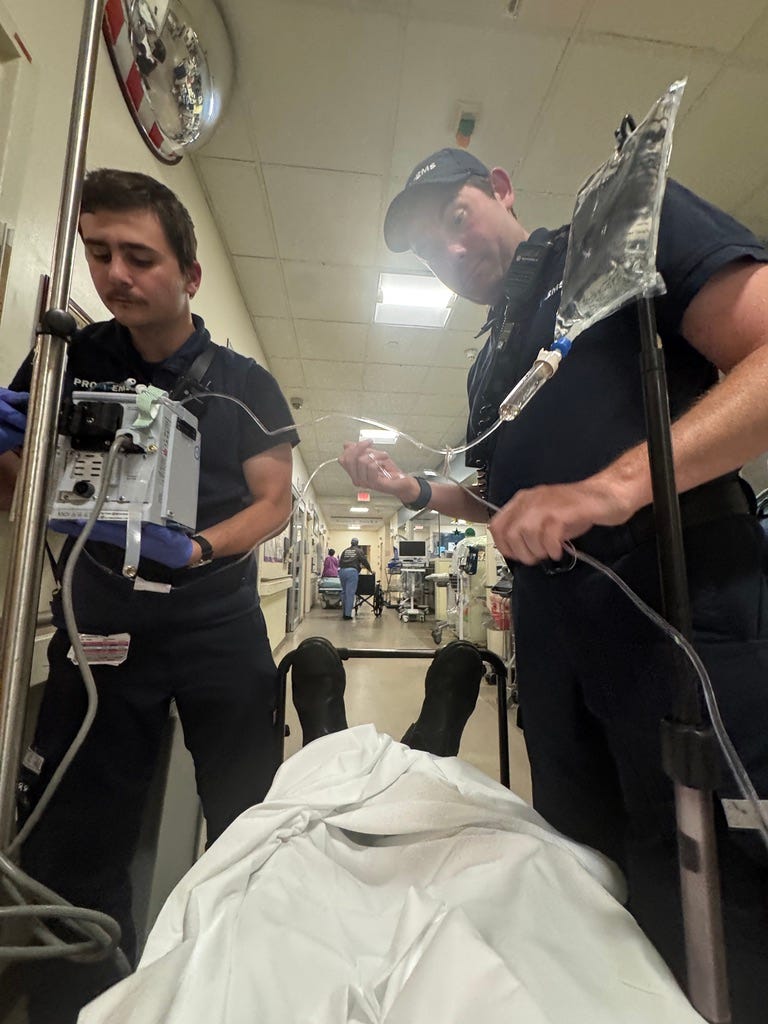
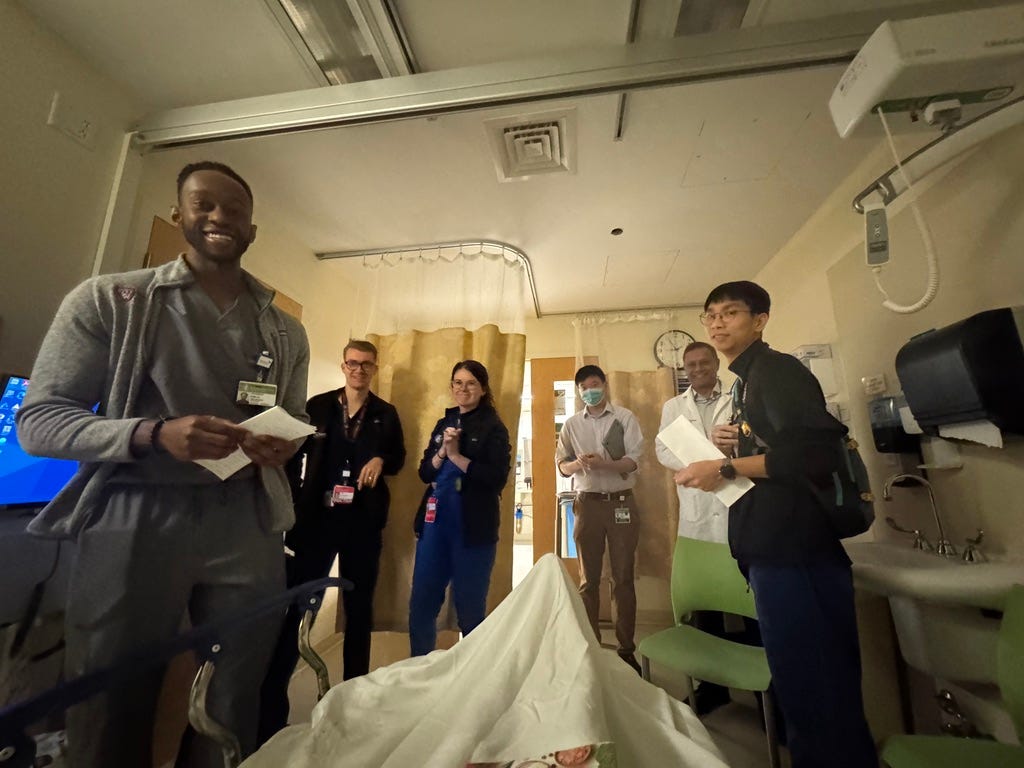
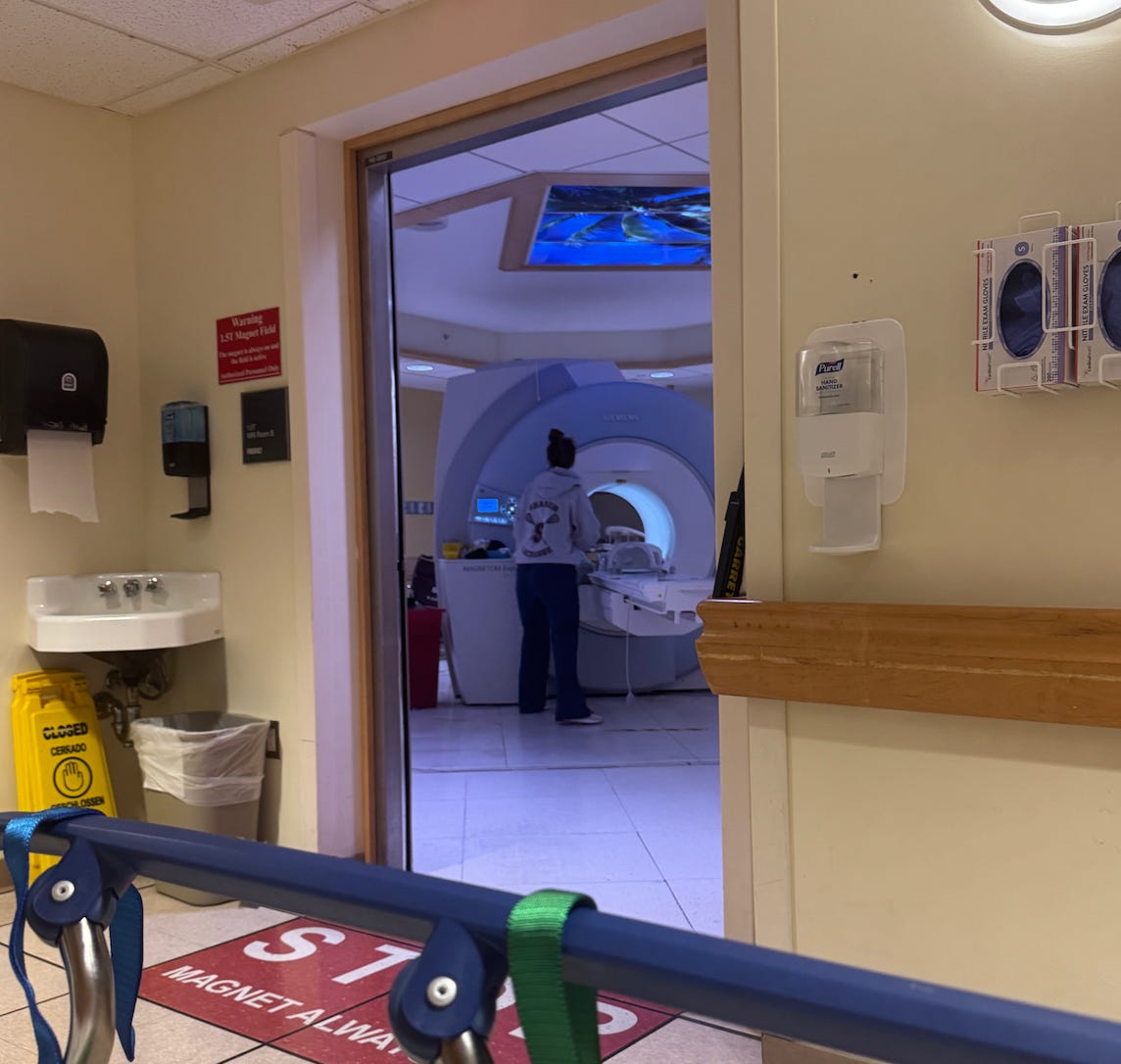
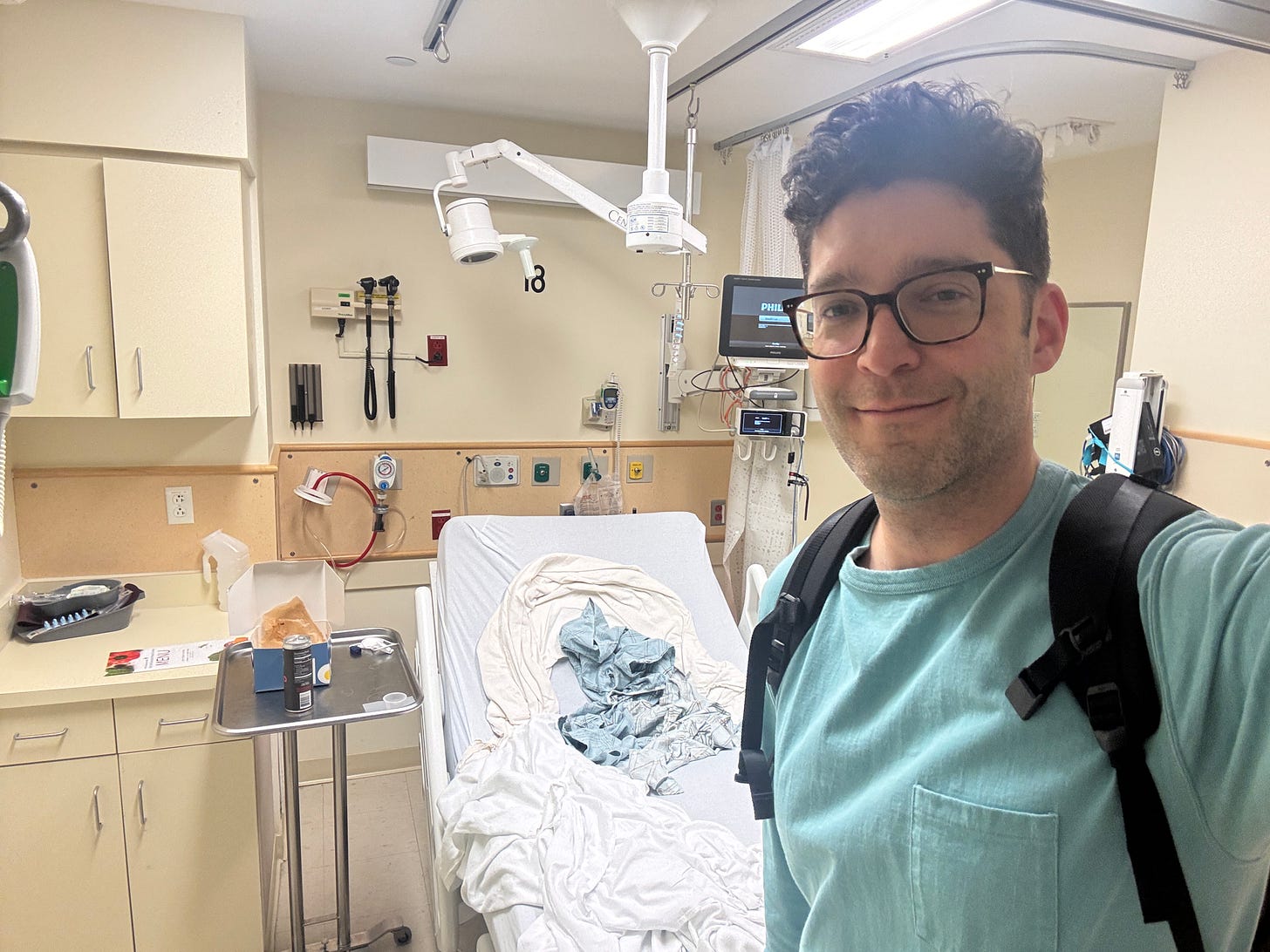
So glad you’re okay!! This does, in my opinion, say far more about the state of general/mainstream medical knowledge (and possibly the state of our insurance system) than it does about LLMs. If you ever notice a neurological symptom: go get checked out. Period. A neuro symptom is not like a sore muscle or a tummy ache. It’s almost always a sign of something serious. I would’ve immediately gone to an urgent care or ER when I noticed the droopy eye.
What an incredible story. A few months back I remember a post on Twitter going viral about a guy who made it to the ER just in time after ChatGPT flagged his testicular torsion. Did you use the Thinking model for this, or was it just the base one?